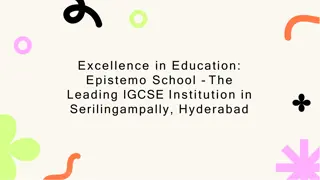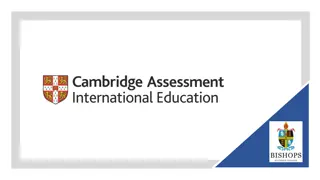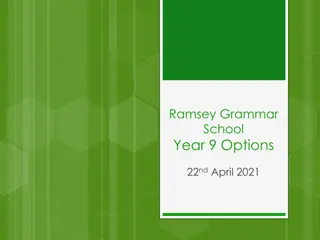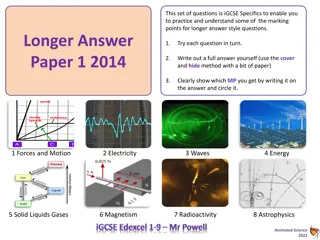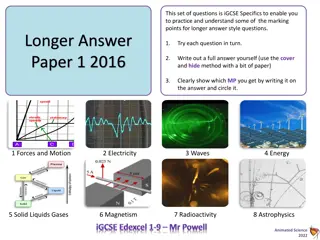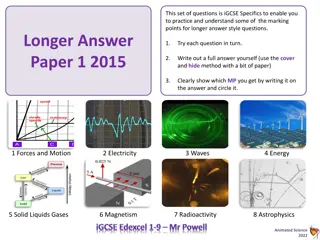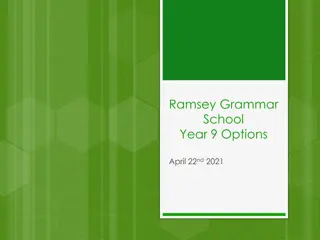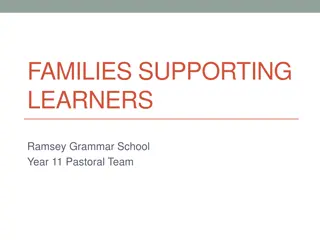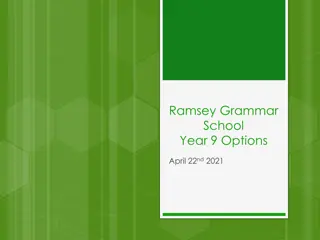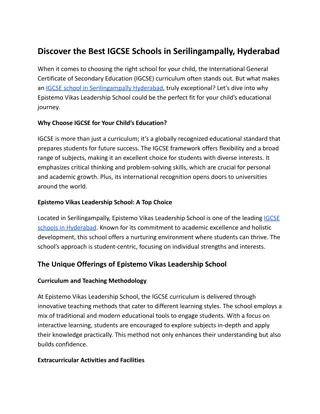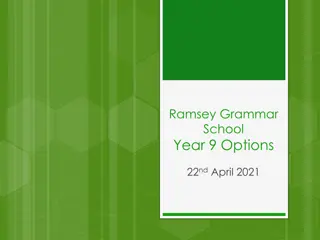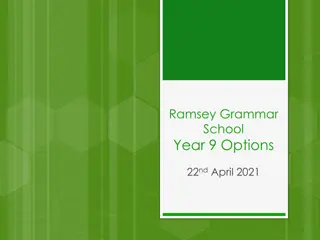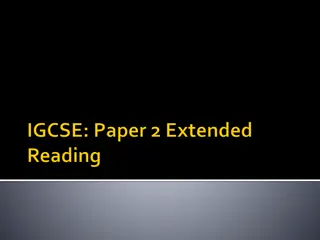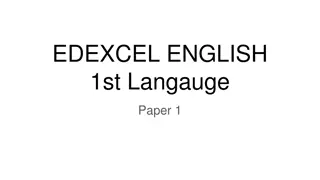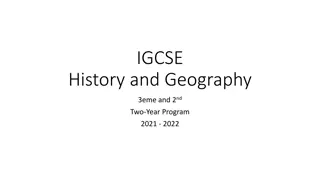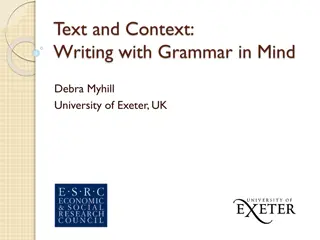Understanding Cambridge IGCSE English Literature Course at Ramsey Grammar School
The Cambridge IGCSE English Literature course at Ramsey Grammar School for Year 9 students covers drama, prose, and poetry. Emphasis is on analytical response and interpretation of texts. Success in the course requires dedication to independent learning, critical thinking skills, and organizational abilities. Students are expected to read widely, attend plays, and engage in deep analysis. Parents can support their child's learning by fostering a reading-friendly environment at home and encouraging discussions on literary themes and characters.
Download Presentation

Please find below an Image/Link to download the presentation.
The content on the website is provided AS IS for your information and personal use only. It may not be sold, licensed, or shared on other websites without obtaining consent from the author. Download presentation by click this link. If you encounter any issues during the download, it is possible that the publisher has removed the file from their server.
E N D
Presentation Transcript
Ramsey Grammar School Year 9 Options 22ndApril 2021
English Literature Cambridge IGCSE English Literature in English - 0475
How is the course assessed Paper 1 Prose and Poetry 1 hour 30 minutes 50% Paper 3 Drama 45 minutes 25% Paper 4 Unseen (poetry or prose) 1 hour 15 minutes 25%
What is covered in the course Students will read drama, prose and poetry. They will be expected to examine all of these closely with a focus on developing an analytical response in essay form that interprets texts overall. This analysis should be linked, in detail, to the text and the language of the text. Students will be encouraged to watch plays by visiting the theatre, attending the Northern Theatre Experience and by viewing productions in class.
Qualities needed for success, skills developed Readers and those who read at least one new text a month. Students who are prepared to extend themselves independently, spending additional time on preparing essays, reading around the subject and organising their ideas outside of lesson time. Students who have a high expectation of their own work ethic, refusing to settle for work that does not represent their full effort. A good literature grade shows a student who can analyse, interpret, evaluate and critique, skills of the highest order of thinking. These skills mean that possible future careers choices are wide and varied with very few limitations.
Expectations Independent learning Homework Organisation of work Keeping to deadlines Good attendance
Texts and additional resources Wide-range of texts studied and further information will be given out in parents information evening in September.
How can home support Read. Let students see you reading. Leave books lying around the house. Take your child to the library and encourage them to take risks and try texts that are more mature. When watching TV together, discuss the themes, character developments and landscapes of fictional dramas. When watching non-fiction, discuss how information is presented, who the documentary is for and what the content means. Buy a good newspaper such as The Guardian and discuss the content with your child. Leave the paper around at home so that students can pick them up and read them. Perhaps invest in a magazine subscription such as The Week (theweek.co.uk) which offers a range of well-written, non-fiction articles. Summarising information is one of the most challenging skills that students are met with in the language GCSE and parents can help by encouraging summarisation in conversation or when watching programmes together.



